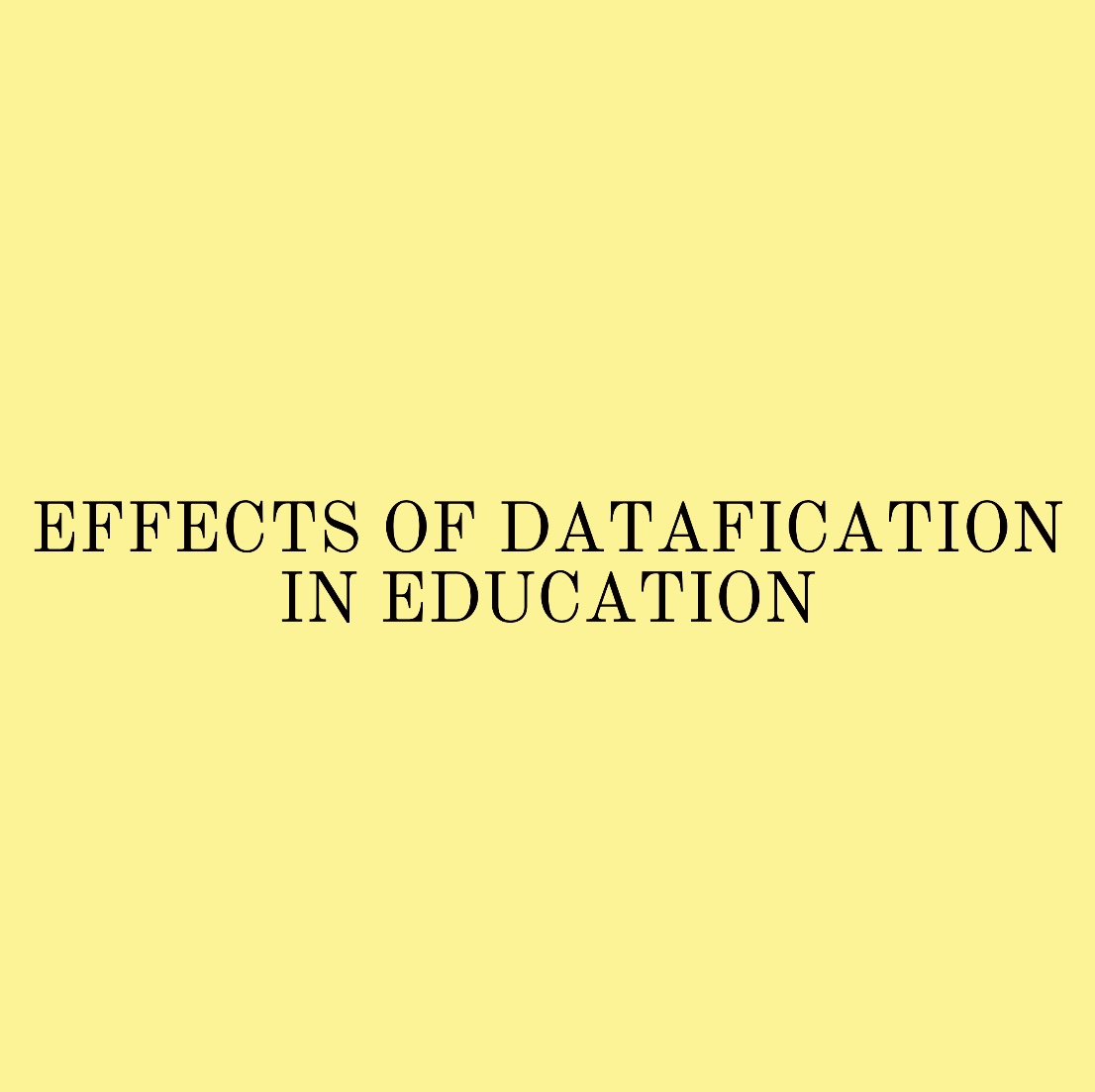EFFECTS OF DATAFICATION IN EDUCATION
Datafication is the availability of data and corresponding algorithms.
In addition, it introduces new means to measure, capture, describe and represent social life in numbers.
Moreover, the education sector is one of the most important sectors of the economy.
Datafication transforms not only the ways in which teaching and learning are but also the ways in which future generations (will) construct reality with and through data.
Also, the datafication of education comprises of the collection of data on all levels of educational systems.
In addition, individual, classroom, school, region, state, international potentially about all processes of teaching, learning and school management.
Although This proliferation of data changes decision-making and opinion-forming processes of educational stakeholders.
They include education policy, school supervision, school authorities, teachers, students and parents.
For example, data are used to improve school development, to hold schools and teachers accountable, to control access to schooling or to compare student achievements across countries.
However, Such cases raise expectations with respect to increased transparency, accountability, service orientation and civic participation.
Furthermore it is also has to do with fears or respect to surveillance and control.
In addition to privacy issues, power relations, and inequalities.
Within the educational context, more and heterogeneous data are for monitoring, surveillance or evaluation purposes, but also – automatically – through routine operations of a manifold of digital devices and systems.
In addition, Schools, for example, are being transformed into ‘data platforms’ in which ‘a wide range of data tracking, sensing and analytics technologies.
Although These digital educational data are distinct from pre-digital forms as they may be exhaustive in scope.
It can also in a flexible manner and at different aggregation levels.
However, Such possibilities have always existed on a small scale, but new data infrastructures and algorithmic capabilities allow for analytics of complexity and scope.
https://www.tandfonline.com/doi/full/10.1080/17439884.2019.1573833
In this article, you will learn some of the positive effects of datafication in education;
1. It makes early childhood education easier:
Datafication allows children to learn in a very fast and digitized manner.
It also allows both the parents and teachers to track the children or student’s progress.
This makes it easier for them to effectively identify their strengths and weaknesses. It also helps them to understand how well the child is performing or developing.
2. It lessens the burden of the teacher:
With Datafication, teachers gets to cover a wider range of work and are also able to interact with the students through various methods.
Datafication also allows teachers to work in a flexible manner. It also helps teachers to get their work done within a short period of time.
3. It improves students engagement:
Datafication gives room for students to learn in a digitized environment.
It also increases the rate at which they are able to participate in various school activities. This can be possible through the various platforms that is at making learning more accessible to students.
Are you a school owner and you need a web solution to automate your school work click here to sign up for free.



